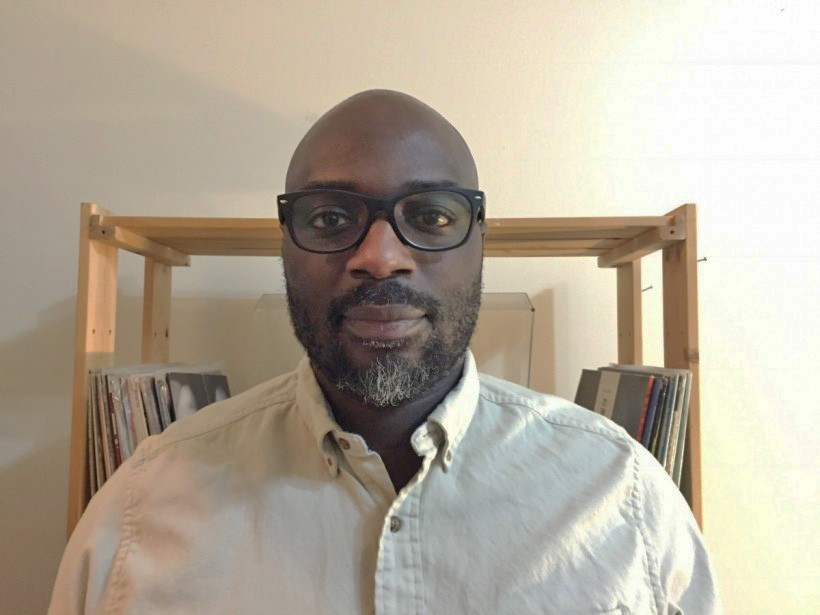Solidarity with the Cuban Revolution

Cuba has been a part of my consciousness in one form or another since I was a child. My paternal great-grandfather migrated to Cuba from Jamaica and never returned, and I am certain that I have biological family in Cuba. My partner and adopted family are Cuban, as are many of my close friends.
I have been following the Cuban Revolution since I was a boy. When I was 16, I bought a shortwave radio and I used to listen to Radio Havana Cuba’s English-language broadcast religiously. I further fell in love with the romance of the Revolution, and I still possess that radio, and those fond memories.
I first traveled to Cuba in 1997 for the International Festival of Youth and Students, and then again in 2000 for a Cuba Solidarity Conference. In 2002 I spent a month there visiting and writing. Since 2009 I have been traveling to Cuba regularly, sometimes several times per year.
I was physically present in Cuba when Fidel Castro delivered speeches, including at least one that lasted over 5 hours. I endured them—in the literal physical and mental sense of the word endurance—because Fidel was one of the most remarkable human beings of our times. As the octogenarian former Cuban slave Esteban Montejo remarked in a 1968 interview with the Jamaican writer Andrew Salkey in Havana Journal, “there will never be another Fidel.”
What am I getting at?
I am not Cuban, nor am I trying to insert myself into Cuba’s revolutionary narrative. But I do believe in the ideals of the Cuban Revolution. I also believe that Cuba is, artistically, culturally, socially and politically one of the most remarkable places on the planet. Cuba has punched well above its weight for decades, a flyweight in the ring with heavyweights. The Revolution has performed incredible feats in healthcare, education, housing, international solidarity, science (including a COVID vaccine) and many other areas. The Cuban Revolution has been an incredible service to the Cuban people, and the world—much more than can be mentioned here.
That said, a revolution cannot live by services and provisions alone, and political and intellectual integrity compel me, and I dare say “we,” to say: notwithstanding the US embargo, US government policies, US external interference and its collusion with the crude anti-revolution lobby in Miami that is personified in US senators Marco Rubio and Ted Cruz; notwithstanding the colossal collapse of Cuba’s economy when the Soviet Union crumbled and the resultant ‘special period’ of extreme economic and social hardship that the Cuban people suffered; notwithstanding the concomitants of COVID and economic crisis in Cuba—notwithstanding all of this, and much more, the Cuban Revolution is struggling with itself, and the recent unrest cannot solely be reduced to external factors. Some of Cuba’s internal wounds are self-inflicted.
To paraphrase out of context the Cuban-born Jamaican theorist, Sylvia Wynter, the dialectic in Cuba is stuck. The presence of paternalism, privilege, patronage and growing inequalities, including but not limited to growing economic and racial disparities in Cuba cannot be blamed on external or historical factors alone, even as it is obvious that the embargo and other external political and economic factors have profoundly contributed to these problems. It is worth noting here that these issues have been raised by the Cuban leadership itself, and yet many on the left have often interpreted solidarity with silence. The Cuban Revolution faces a colossal threat from the US, and it is incumbent upon those of us on the left who recognize the importance of the Revolution to defend what the Revolution can be. But solidarity has two sides, and we owe it to Cuba to critically engage and ask difficult questions of the Revolution, and to not subordinate our political integrity to it, despite our fears that positive criticism will be negatively used against it. It is a delicate balance, a dance with the dialectic, but even as we acknowledge that states and leaders usually trail behind the aspirations of the population, revolutionary politics is ultimately a dialogue between the individual and collective needs and aspirations of the people.
As we know from the history of Haiti and Grenada, Caribbean revolutions have historically confronted both immense, seemingly insurmountable, challenges associated with external intervention, and the internal limitations of leadership. The right of the Cuban state to determine its fate must be defended against external aggression. But critique is also an integral part of this process, and the generic left must also be willing to recognize and acknowledge the shortcomings and failures of the Revolution and acknowledge some obvious truths: Cuba is not a utopia nor a society of equals; it is a revolution in motion, a state that aspires to do more than most, but although Cuba has proven to be exceptional in so many ways, it is not an exception to the rule that critique (internal and external) is a crucial and necessary part of building and sustaining a healthy, living and breathing polity.
—David Austin
David Austin is the author of the Casa de las Americas Prize-winning Fear of a Black Nation: Race, Sex, and Security in Sixties Montreal, Moving Against the System:The 1968 Congress of Black Writers and the Making of Global Consciousness, and Dread Poetry and Freedom: Linton Kwesi Johnson and the Unfinished Revolution.
